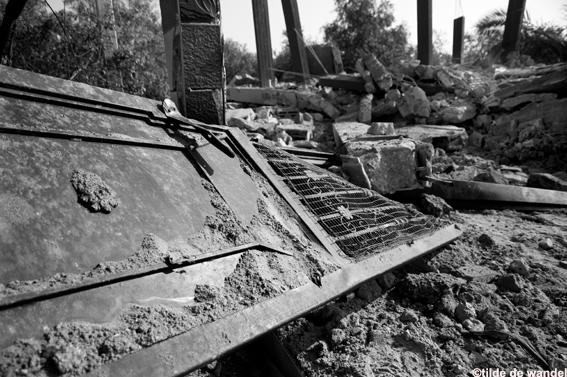Tag: Khan Younis
-
Israel bombs Gazan homes, injuring six
21 November 2010 | International Solidarity Movement House bombed in Deir al-Balah The afternoon of November 19th an Israeli fighter plane bombed a house in Deir al-Balah in central Gaza. The house of the Dar Shorafa family, located 400 meters from the border fence, has disappeared. At the center of the date palm garden is…
-
Three protests in Gaza: Israeli sniper shoots Palestinian man, leaving him in critical condition
A 20-year-old Palestinian man, Sliman Abu Hanza, is in a critical condition in hospital after being shot in the abdomen with a ‘dum dum’ bullet at a demonstration in Al-Faraheen, Khan Younis, on Sunday. The injury was inflicted during one of three non-violent demonstrations which took place on Sunday; in Beit Hanoun, Maghazi and Faraheen…

